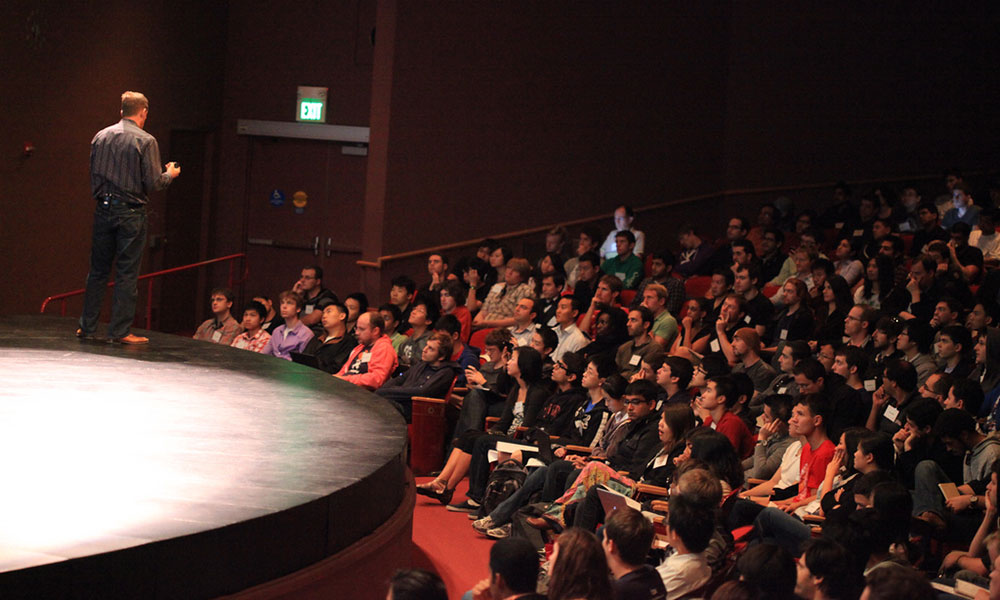
What Associations Can Learn From Startup Accelerators
With a major advocacy group finding value in the well-known Y Combinator accelerator, now might be a good time to see if there are ideas you can borrow from accelerators in your own ideation process.
The startup accelerator Y Combinator is famous for proving an able launching pad for some of Silicon Valley’s most famous companies, including Reddit, Dropbox, and Airbnb.
So it was a bit surprising last month when the American Civil Liberties Union, one of the most prestigious legal advocacy groups in the country, announced it was going to join the firm’s latest batch of companies—a move that came during a period of increased attention for the nonprofit.
“The ACLU has always been important, but has a particularly important role right now,” explained Y Combinator President Sam Altman. “We are honored to be able to help, and we will send some of our team to New York for the rest of the batch to assist.”
If you run an association, you might wonder to yourself, what could I learn from an accelerator like Y Combinator or 1776? Here are a few tips to take back to your organization:
Encourage rigorous creation on the cheap: Y Combinator emphasizes simple and lean businesses that work quickly to solve problems and go through a set process of application, creation, and launch. Y Combinator doesn’t offer applicants a lot of money to start with—the total has varied and has been as low as $20,000—but it makes up for that through a high amount of training and assistance throughout the creation process. If $20,000 was enough to build Airbnb, imagine what it means for a lot of smaller companies.
Allow the rules to be bent: One of the most successful companies to come out of Y Combinator, the grocery delivery service Instacart, entered Y Combinator not through the front door but with a carefully delivered six-pack. After being rejected multiple times in 2012, Instacart Founder Apoorva Mehta eventually won the accelerator over by using his app to deliver a six-pack of beer to Garry Tan, who was then a partner with the firm. The “hack” persuaded Y Combinator to give the company a chance. The company is now valued at $2 billion. (The ACLU is helping to bend another rule: Y Combinator employees will travel to the nonprofit’s headquarters, rather than the other way around.)
Create a culture that spreads: Companies and people who succeed with Y Combinator tend to not fall off the radar. Alumni typically remain involved, taking mentorship roles. Additionally, the organization’s leadership has been known to come from within: Altman, its president, was part of one of the earliest Y Combinator classes through his company Loopt, and Tan, a partner until 2015, helped launch the startup Posterous. Through its social news platform, Hacker News, the accelerator often reveals important technology trends that keep people talking.
Set a hard, fast deadline: One key element that Y Combinator entrants gain is that they have to show off a complete product after just a few months of work. And that product makes it debut to the world on “Demo Day,” in which tech kingmakers get a close-up look at the end result. The deadline limits the amount of second-guessing.
Emphasize simple explanations: One important element of Demo Day is that people are not onstage for an hour. “On Demo Day, members of each biannual cohort—or ‘batch’—pitch their startups and organizations to a carefully curated audience of investors and reporters,” Atlantic contributor Anna Wiener explained last year. “Pitches are short (2.5 minutes each) and presented relay-style; the event is high-pressure and a little theatrical. The startup ideas can be inspiring, ludicrous, magical, infuriating.” The approach means that clear, simple elevator pitches are the way to go.
A scene from Y Combinator's 2011 Startup School event. (Robert Scoble/Flickr)






Comments